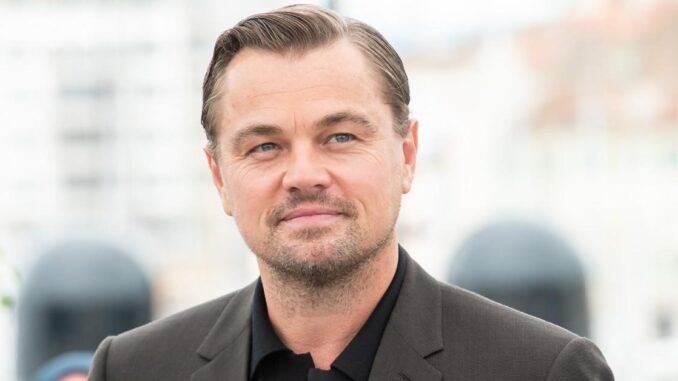
The Unsinkable Weight: DiCaprio and the Ghost of Jack Dawson
Leonardo DiCaprio, the name synonymous with Hollywood royalty, a man who has traversed diverse roles and conquered the silver screen with unwavering dedication, carries within him a ghost. It's not a malevolent spirit, but rather a persistent echo, a lingering whisper of a young, idealistic artist named Jack Dawson. Titanic, the film that catapulted him to global superstardom, remains a monumental piece of his legacy, a subject of both profound gratitude and, as recently revealed, a quiet regret. After nearly thirty years, the subtle discomfort DiCaprio harbored about the film has surfaced, revealing a vulnerability beneath the seasoned actor's stoic facade: his biggest regret, it seems, is not about the role itself, but about the pressure and scrutiny that followed, irrevocably altering the trajectory of his life and career.
Before Titanic, DiCaprio was a promising young actor, lauded for his nuanced performances in films like "What's Eating Gilbert Grape" and "Romeo + Juliet." He possessed raw talent, a captivating screen presence, and a genuine commitment to his craft. But Titanic changed everything. Suddenly, he wasn't just an actor; he was a heartthrob, a pin-up, a teen idol. The intensity of the fame was unprecedented, a tidal wave of adoration and obsessive media attention that threatened to engulf him. This, perhaps, is the crux of his regret.
The weight of expectation became immense. Every role choice, every public appearance, every personal relationship was dissected and scrutinized under a microscope. The freedom to experiment and take risks, a vital component for any aspiring artist, was constricted by the unwavering gaze of a public that had defined him through the lens of Jack Dawson. This forced him into a defensive posture, a conscious effort to distance himself from the "teen idol" image that threatened to define him.
We see this manifested in his subsequent film choices. Instead of capitalizing on his newfound heartthrob status with predictable romantic comedies, DiCaprio actively sought out challenging and complex roles. He collaborated with directors like Martin Scorsese, Christopher Nolan, and Quentin Tarantino, immersing himself in demanding characters that stretched his acting abilities and defied audience expectations. He tackled biopics, playing figures like Howard Hughes in "The Aviator" and J. Edgar Hoover in "J. Edgar," roles that demanded a level of gravitas and nuance far removed from the romanticized image of Jack Dawson. This wasn't simply a matter of career strategy; it was a deliberate attempt to reclaim his artistic agency, to prove that he was more than just a pretty face on a sinking ship.
His commitment to environmental activism further solidified his shift from a mere celebrity to a public figure dedicated to making a tangible difference. His dedication to raising awareness about climate change and supporting environmental initiatives became a defining aspect of his public persona, further distancing him from the superficiality often associated with Hollywood. This activism, arguably, became a shield, a way to channel the intense scrutiny he faced into something positive and impactful.
DiCaprio's regret, then, is not about the success of Titanic. He acknowledges and appreciates the opportunities it afforded him. Instead, it's about the loss of innocence, the abrupt transition from a promising young actor to a global phenomenon, a shift that robbed him of the freedom to simply be an artist without the crushing weight of expectation. It's a regret that resonates with anyone who has experienced a sudden and dramatic change in their life, a feeling of being defined by a single moment, forever tethered to a past that, while significant, doesn't fully encapsulate the totality of their being.
In the end, the "unsinkable" legacy of Titanic continues to shape DiCaprio's narrative. It's a reminder of the power of cinema, the intoxicating allure of fame, and the enduring human desire for connection and romance. But it's also a testament to DiCaprio's resilience and unwavering commitment to his craft. He has navigated the treacherous waters of fame, refusing to be defined by a single role and forging a career that is both critically acclaimed and socially conscious. The ghost of Jack Dawson may still linger, but Leonardo DiCaprio has proven that he is more than just a fleeting image on a giant screen; he is an artist, an advocate, and a force to be reckoned with. The weight of expectation may still be there, but he carries it with the grace and determination of a man who has truly earned his place at the top, a man who has learned to live with the unsinkable weight and use it to fuel his artistic and personal growth.